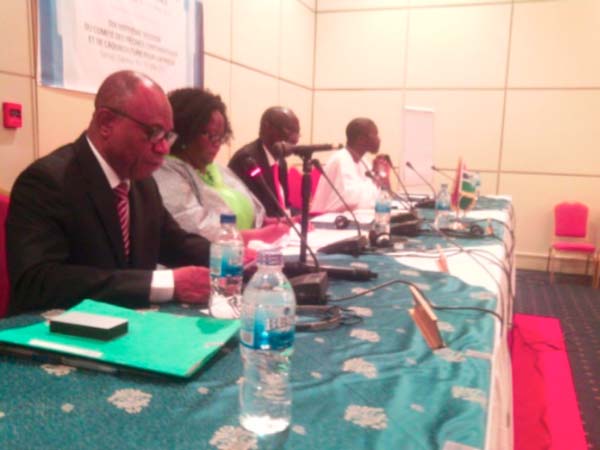
A
three-day sub-regional stakeholders’ meeting on the seventeenth session of the
Committee on Inland Fisheries and Aquaculture of Africa (CIFAA) kicked off
yesterday at the Kairaba Beach Hotel.
The
meeting, organised by the Gambia Government in partnership with FAO, discussed
the development and management of Inland Fisheries and Aquaculture in Africa.
In
his opening statement, James Gomez, Minister of Fisheries and Natural Resources,
said with the advent of the new government the expectations of the Gambians,
particularly the women and youths in terms of employment creation, income
generation, poverty alleviation as well as food security, are high on the
agenda.
The
Fisheries Minister further said fisheries in Africa have been seriously
underperforming over the last twenty-two years due to biological and economical
overfishing.
“Indigenousness
is in consistence with global trend as a result of poor fishery governance and
management as well as illegal, unreported and unregulated fishing, costing the
region an estimated cost of three billion dollars in lost legal revenues.”
Dr
Chiji Ojukwu, Director of Agriculture and Agro-Industry Department of the African Development Bank, said to achieve
the development goals in Africa the bank has defined five priority areas
referred to as the high 5s.
These
priority areas are “light up and power Africa, feed Africa, industrialize
Africa, integrate Africa, and improve the quality of life for people of
Africa”.
He
said Feed Africa targets by 2025 to contribute to the end of extreme poverty,
end hunger and malnutrition in Africa, end food import bill and move Africa to
the top of key agricultural value chains.
The
FAO representative in The Gambia, Dr Perpetua Katepa Kalala, said Africa’s
inland fisheries resources is where thousands of professionals rely on for
their livelihoods and millions depend on for an important part of their daily
nutrition.
Inland
fish and their fisheries serve important nutritional, economic, cultural, and
recreational roles and are key components of sustainable ecosystem functions
throughout the world.
She
said global attention on the depletion of fisheries has focused predominately
on marine fish stocks despite the importance of freshwater fisheries around the
world.
Inland
fisheries are often underappreciated and undervalued, she added.
“Inland
fisheries will only be appropriately considered in decision-making and
governance processes if the full range of their economic, social and
environmental values are understood and effectively conveyed to stakeholders.”
The
development of aquaculture in Sub-Saharan Africa makes a large and growing
contribution to inland fish production in many regions, she added.
However,
she said, aquaculture is still a minor contributor to food security in many
areas, adding that resource-poor people might not have the capacity to engage
in aquaculture.


